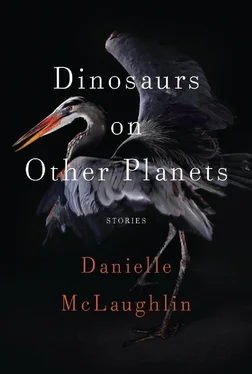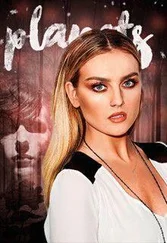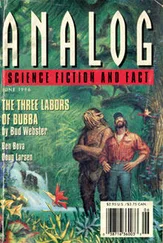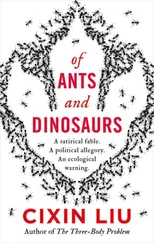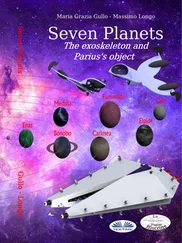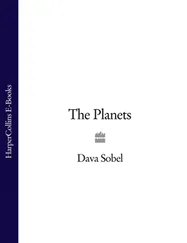“Daylight robbery,” Kavanagh said when he returned to the lorry. He handed the pump attendant the money. “Bring me out two packets of Tayto and have a packet for yourself.” He shook his head as he climbed back into the cab. “Daylight robbery,” he said again. “Four cents a liter dearer than Slattery’s.”
Gerard didn’t ask why they hadn’t gone to Slattery’s. Slattery’s had stopped their tab a few weeks back, and Kavanagh had been keeping his distance since.
Kavanagh hummed tunelessly while he waited for the boy to return with the crisps and his change. It was a fragment of a ballad he had taken up sometime after they passed Gurrane, forty miles earlier, and he had not let it go since. Taped to the walls of the cab were pictures torn from magazines of women in an assortment of poses. They were mostly Asian and in varying states of undress: Kavanagh had a thing for Asian women. A photograph of Kavanagh’s wife, Nora, taken at last year’s GAA dinner dance, was stuck between a topless girl on a Harley-Davidson and two dark-eyed women in crotchless panties. Nora had blond wispy hair and glasses, and the straps of her dress dug furrows into her plump shoulders.
“We’re in Injun territory now,” Kavanagh said when he saw the boy coming across the forecourt. “These Limerick bastards would rob the teeth out of your head,” and he counted the change down to the last cent before putting it in his pocket.
It was almost dark when they pulled back onto the road. Kavanagh threw a packet of crisps across the cab. “That’ll keep you going,” he said. “We can’t count on Liddy for grub.” Four miles before Kilcroghan, they turned down a narrow side road, grass growing up the center. Briars tore at the sides of the lorry. “There’s a man in Dundalk runs one of these on vegetable oil,” Kavanagh said. “Did you ever hear anything about that?”
“No,” said Gerard, although he remembered reading something in a newspaper a couple of months back. If he let on that he knew anything at all, Kavanagh would have him tormented. Kavanagh had a child’s wonder for the new and the strange. Each new fact was seized upon and dismantled, taken apart like an engine and studied in its various components. He had been bright at school but had left at fourteen to work in the fish factory.
Kavanagh shook his head. “I don’t think I could stand it,” he said. “The smell. It must be like driving around in a fucking chipper.” Gerard glanced across at Kavanagh and tried to work out if he was serious. Kavanagh was watching the road, fingers drumming the steering wheel, humming to himself again. The light from the dashboard lent a vaguely sainted glow to his features. Gerard decided not to say anything. Kavanagh broke off his humming and sighed. “You’re all chat this evening,” he said. “I can’t get a word in edgewise. Are you in love or what?”
“Fuck off,” Gerard said, but he was smiling as he turned to look out at the trees that reached black and tall from the hedges, their branches slapping against the lorry’s window.
Gerard had first been to Liddy’s mink farm back in August, six weeks after he started working for Kavanagh. He had not been able to shake the memory of the place since. It was partly the farm itself and it was partly Liddy’s daughter. She was about seventeen with blue-black hair, eyes heavily ringed with black liner. When Kavanagh had gone inside with her father, she had taken Gerard across the yard to show him the mink.
The mink were housed in sheds a couple of hundred feet long, twenty or thirty feet wide, with low, sloping roofs of galvanized sheeting. The sides were open to the elements, wind blowing in from the mountains to the west. Gerard followed the girl into the first shed and along a sawdust path down the center. In wire-mesh cages on either side were thousands of mink, mostly all white, with here and there a brown one. They darted back and forth and stood on their hind legs, heads weaving, snouts pressed against the wire. Their eyes glittered like wet beads, and they twisted and looped, twisted and looped, hurling their bodies against the sides of the cages.
Gerard stood in front of a cage and poked a finger through the mesh. A mink stopped chewing its fur and looked at him, a vicious tilt to its chin. It sniffed the air, crept closer, and snapped, grazing the tip of his finger. Then it backed away to stare at him from a distance.
The girl was a couple of paces ahead, watching. “I suppose you think it’s cruel,” she said. Her hair was tucked into the hood of her jacket, and she had her arms folded across her chest.
Gerard examined his finger and shrugged. “It’s none of my business,” he said.
The girl had stared at him for a moment, saying nothing, her dark eyes narrowing. Then she sighed. “It’s what they’re bred for,” she said, turning away. “They don’t know any different.”
It was dark when Kavanagh swung the lorry through a muddy entrance with rough concrete pillars on either side. The lorry lurched along an uneven track, lined with chain-link fencing. In the distance, Gerard could make out the long, dark rows of the mink sheds, moonlight glinting on the metal roofs, and beyond them a huddle of outbuildings. “Liddy hasn’t paid since June,” Kavanagh said, “so he’ll need to come up with the cash tonight. I’ll sort you out then.”
“It’s all right,” Gerard said. “It’s grand,” although it wasn’t all right anymore. Kavanagh hadn’t paid him in three weeks, and on his last visit home Gerard had to borrow from his father to pay the rent. “I’ll sort you out,” Kavanagh repeated as the lorry turned into the yard.
The farmhouse was a square two-story building, its whitewash fading, weeds growing from crevices in the front steps. A cat ran across the lorry’s path and hid behind a row of tar barrels. Liddy’s mud-spattered Jeep was parked in the yard, a back light broken. “It would be easy to feel sorry for Liddy,” Kavanagh said, “but what would be the use in that?” and they both got out of the lorry.
A light came on in the porch and Liddy himself appeared. He was a stooped, wiry man, a gray cardigan hanging loose from his shoulders, and his eyes darted from Kavanagh to Gerard and back again as he came toward them across the yard. His skin had the waxy, pinched look of a museum doll. It reminded Gerard of how his mother had looked in the months before she died, and he knew immediately that Liddy was sick.
“How’re the men?” Liddy held out a bony hand to Kavanagh, who took it in his own vast paw and squeezed until Gerard expected to hear bones crack. Liddy’s daughter had come out onto the porch. She was slouched against the doorframe, arms folded, her black hair pulled loosely into a ponytail.
Liddy looked up at the night sky with its shifting mass of cloud. “The rain will be on soon,” he said. “You might as well get her unloaded. I’ll put the kettle on for tea.”
Gerard went to release the back of the lorry, but Kavanagh held up a hand. “Hold on a minute,” he said. “If it was tea I was after I could have stayed at home. Tea is fuck all use to me.”
The girl, wearing tracksuit bottoms and a vest, was coming down the porch steps and across the yard. She had the same black-ringed eyes that Gerard remembered from before.
Liddy had already begun to shuffle toward the house. He called back over his shoulder to Kavanagh. “Don’t you know I’m good for it?” he said. “Have I ever let you down yet?”
Kavanagh didn’t budge. “That’s three loads you owe me now,” he said. “I’ve bills to pay. I’ve this young fella here to pay.” He nodded at Gerard, who stood waiting by the lorry.
Liddy stopped. He gave a wheeze that shook his chest and caused him to bend almost double, hands on his knees. “Sure, what could a young lad like that want?” he said, when he righted himself again. “A young lad like that would be happy sitting under a bush with a can.” He laughed then, but Kavanagh didn’t.
Читать дальше
